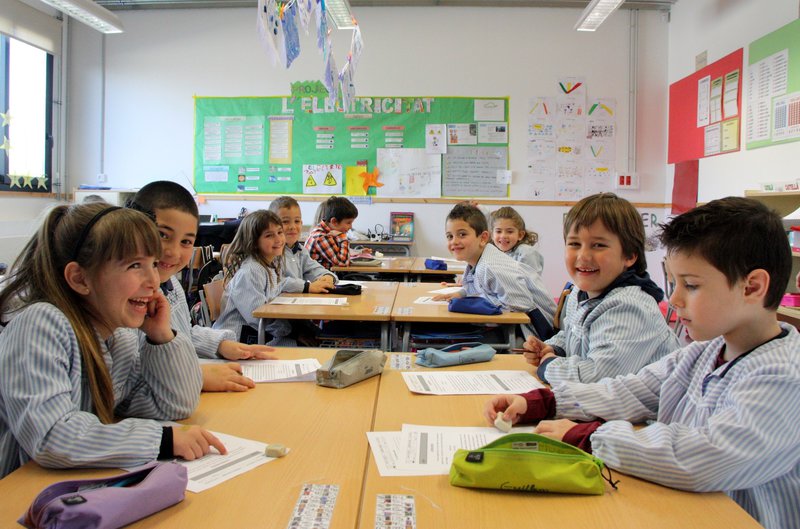Catalan kids are happy
In general children in Catalonia give themselves a nine out ten score in the happiness rankings
International study surveyed 53,000 children on their welfare around the world
All parents ask themselves if their children are happy, and the answer is a resounding yes. It is particularly true if the children are from Catalonia and between the ages of eight and 12. At least this is the conclusion of an international study comparing the levels of welfare of children around the world. In fact, Catalan children give themselves a score of nine out of 10 in the happiness ratings.
The project Children's Words presented its findings on Wednesday in the European Parliament, having surveyed 53,000 children between the ages of eight and 12 in 15 different countries. The questions quizzed children on their life experiences and opinions.
Such a widespread sample makes the study the largest of its kind on an international scale about the lives of minors from their own perspective, a type of research that is rare.
The Fundació Jacobs, which has funded the project for the past three years, commissioned the study in Spain from the Equip de Recerca en Infància, Adolescència, Drets dels Infants i la seva Qualitat de Vida (ERIDIqv) from the Universitat de Girona (UdG). The sample studied by the research group was made up of 3,000 Catalan pupils who answered a questionnaire about their family life, their friends, money and possessions, school life, where they live, the use of their time, their personal welfare, their knowledge of children's rights and their happiness in general.
Ferran Casas, professor of Social Pyschology in the Universitat de Girona and coordinator of the research conducted in Spain, pointed out that apart from the indicators of happiness, “in Catalonia what demands attention is the significant decrease in subjective welfare among 10 to 12-year olds, and the level of dissatisfaction with aspects of school life,” he said, adding: “It can also be seen that schoolchildren in urban areas present lower scores than those in semi-urban or rural areas.”
The researchers found that children in European countries tend to assign high satisfaction levels to friends, while in African countries they are happier with school life. Children in northern Europe are especially dissatisfied with their appearance and self-confidence. One positive conclusion from the study is that the level of happiness between boys and girls does not vary.
Aspects that need improvement
Xavier AguilarDespite the generally positive conclusions made by the study, not all is sweetness and light, however. For example, the research finds that the high levels of welfare detected are not evenly distributed. The report identifies situations where children score significantly lower than the average –those minors that require greater effort and dedication, such as those children born abroad. This group includes children that have less access to technology, those that do not feel fully-accepted by their schoolmates and those that live in situations of insecurity. Another aspect the study identifies is that, while the average level of happiness is generally high, minors in rural and semi-rural areas mark themselves as happier than those in urban areas, which are the majority of children in the country.
“We hope that this work can form the basis for making political decisions related to childhood that receive greater consideration,” says one of the researchers, Mònica Gonzàlez.

